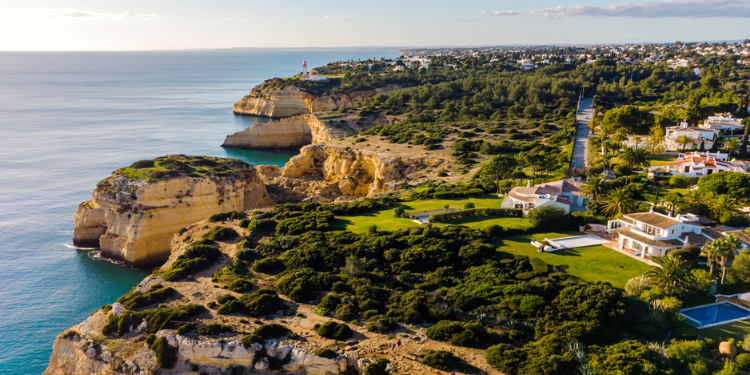
Portugal is currently overhauling its visa system. In July, reforms made to the Law on Foreign Nationals created a 120-day Jobseeker Visa for third-country nationals to look for employment in the country. Later, in November, the Prime Minister also announced that the controversial Golden Visa could soon be scrapped.
PM Costa says that Golden Visa has already fulfilled its function
In a mere decade (2012-2022), the Golden Visa scheme has managed to inject €5.87 billion into the Portuguese economy via real estate investment. Now the Portuguese Prime Minister, António Costa, is saying that the scheme has already met its financial targets and will soon no longer be necessary. It seems like the country wants to focus on less controversial visas, like the Digital Nomad Visa and brand-new Jobseeker Visa, and avoid the legal problems the Golden Visa can bring.
Why was the Golden Visa so controversial in the first place? The European Commission (EC) has been staunchly opposed to Golden Visas in any EU countries. Following the EC's pressure, Bulgaria terminated its Golden Visa in April 2022, and in September, Cyprus followed suit. The very same month, the European Commission announced that it would be taking Malta to court over their Golden Visa's breach of EU law.
The European Commission believes that a fast-track route to EU citizenship shouldn't be “bought” through Golden Visas. Indeed, it's the only type of visa in the EU whose eligibility criteria is purely financial. With a €500,000 investment in real estate, non-EU expats can become Portuguese residents and acquire freedom of movement through the entire Schengen area.
Golden Visa holders can apply for citizenship after 5 years like other types of expats. Here's the major difference, though: they need to have stayed in the country for only 7 days per year to become eligible for citizenship. That is only slightly over 1 month in 5 whole years. In the eyes of the European Commission, this is an unethical shortcut that is “objectionable from an ethical, legal and economic point of view.” These expats might have barely stayed in Portugal and might not have been active, culturally integrated members of its society at all.
Furthermore, the European Commission has raised the alarm that the Golden Visa application process does not screen these uber-wealthy's criminal backgrounds carefully enough. In September, for instance, it was discovered that a Chinese Golden Visa resident of Portugal, Feng Shen, was actually an ex-convict in China who had managed to get the visa using false credentials. There is also little screening of potential tax evasion and money laundering that can be committed by foreign billionaires who transfer their wealth into Portuguese real estate via the Golden Visa.
In an attempt to make the selection process more ethical, Portugal barred Russian and Belarussian billionaires from applying for the visa when Russia invaded Ukraine in March 2022. It was a way to ensure that its local laws were not in contradiction with EU sanctions of Russia.
However, Russian/Belarusian applicants are only a minority of all Golden Visa applicants. Half of all Golden Visa holders are Chinese, followed by wealthy Brazilians, South Africans, Turks, Americans and Angolans. Their visas still present legal risk. To avoid being dragged to the European Court of Justice like Malta, Portugal now seems to prefer terminating this visa altogether.
New Jobseeker Visa facilitates the immigration of non-EU expats
Instead of continuing the risky Golden Visa, Portugal is now directing its resources towards creating and strengthening other visas whose requirements are not purely financial. In October, it started accepting Digital Nomad Visa applications. And a few months before, in late July, Portugal reformed its Law on Foreign Nationals. Among the reforms are the creation of a new Jobseeker Visa.
What is the Jobseeker Visa? Foreign nationals, especially non-EU expats who don't have freedom of movement in the region, can use this visa to stay for 120 days in Portugal and look for a job. They can extend it by an additional 60 days in case they haven't been able to find employment yet. Those successful in their quest can start working immediately and will be granted employment-based residence status. Their family will also be able to join them. As for unsuccessful job seekers, they will have to leave the country upon the visa's expiry date. They will not be allowed to enter Portugal again or re-apply for a new Jobseeker Visa before 1 year.
The Portuguese authorities have made it clear that Jobseeker Visa holders will not be able to travel outside of Portugal or seek employment in other Schengen countries during their 120-day (or 180-day) stay. They will also need proof of funds to cover their expenses over their stay as well as a return ticket home in case they can't find a job.
Holborn Assets
This might be the last chance to-be expats wanting to settle in Portugal get to get an EU Passport remotely, Holborn Assets warn.
Should you wish to acquire a Golden Visa, Holborn Assets is offering to include a clause in your investment agreement ensuring a full refund should the program close before you're able to apply for the visa. It is worth noting that it usually takes around four months to apply for the visa if there are no delays at Embassies which are very common.
However, Holborn Assets reminds anyone interested in the Golden Visa scheme that last year, the Portuguese Government removed all residential properties in major cities from the Golden Visa criteria and as such, it is likely that general requirements for the visa might become less advantageous on the 1st of January 2023.
For further information around the Golden Visa process and available investment options, you can submit your query below and an expert will contact you. You may also submit your questions to Jason Swan, Senior Partner at Holborn Assets Jason.Swan@holbornassets.com or book a time in his diary here.



















